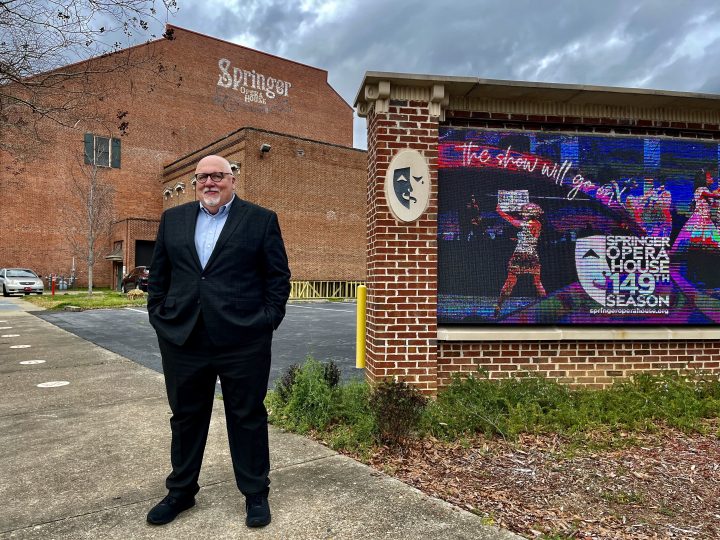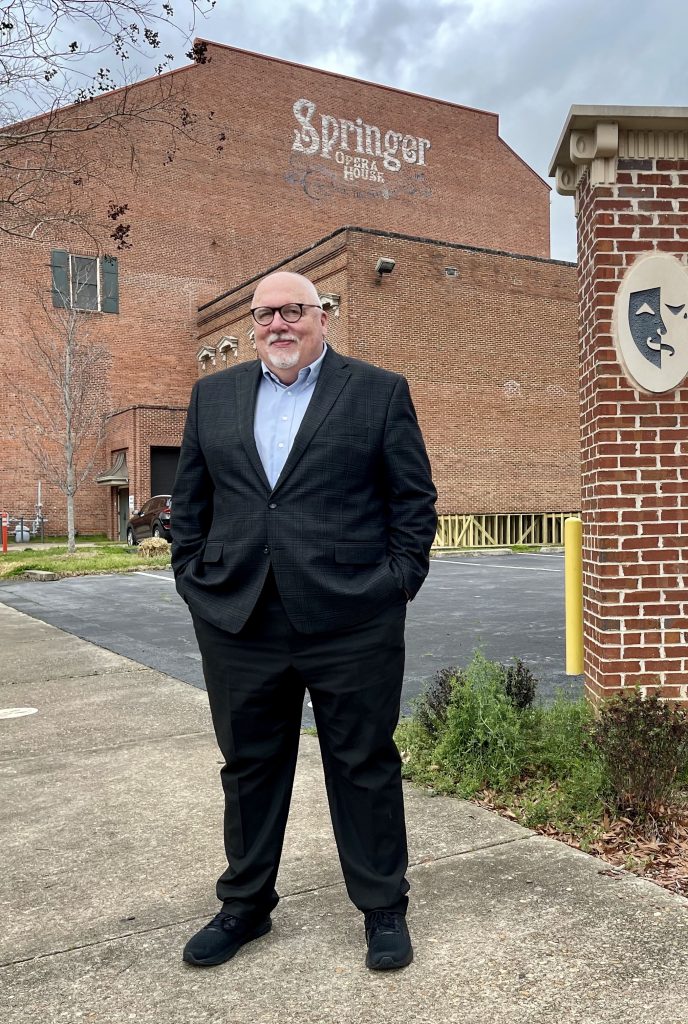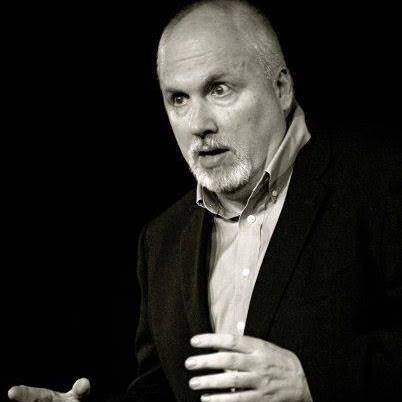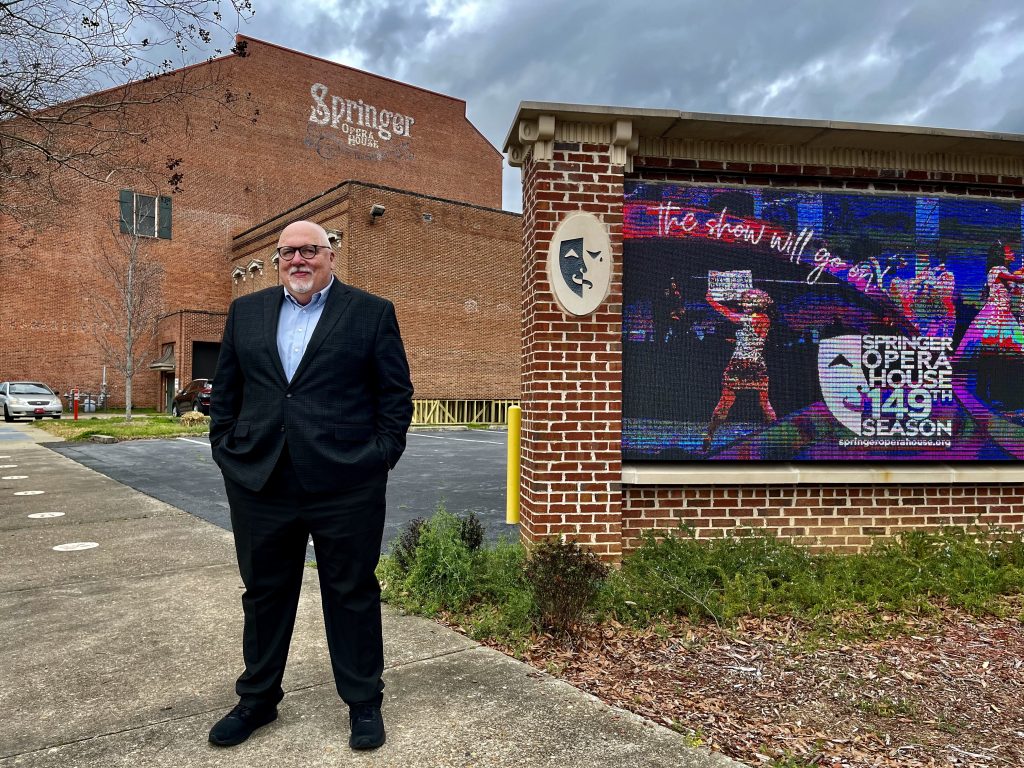
Part 2 with the Producing Artistic Director of the Springer Opera House
How would you describe your response, and the response of your staff, to COVID?
“It has not been easy. Fortunately, I have a staff of very smart, very innovative people.
Just like everyone at the beginning, we didn’t know how long this was going to last. The idea was: Everybody was going to go home for two weeks, we’re going to flatten the curve, and then we’re going to come back to work. We did that. But infection rates continued to rise and it was spreading all across the country.
So we began to create back-up plans. We were sure, after four or five weeks last spring, that we weren’t going to be able to do the remainder of the season. We cancelled the remainder of the season. Soon after that we cancelled the Springer Theater Academy summer session. And we gave patrons — people that had already bought tickets — three options: One, contribute the value of that ticket as a charitable contribution. Two, take a voucher for use in a future production. Or three, ask for a refund. Almost everyone chose voucher or donation. That allowed us a little bit of breathing room as we got through the spring.
Then we did something we had never done before. We were 100% honest with our patrons and our donors: We told them we were in trouble and that we were in serious trouble. We asked them to help us with a contribution. We waited until summer to do that because everyone was going through some pretty hard times. Lots of people getting laid off, people were being furloughed, and nobody knew how long it was going to last. We knew we couldn’t come into the middle of that and start crying a river. So we waited and then we told our patrons that we were in trouble and we asked them to make whatever contribution they could. And we asked them — if they were current donors to the Springer Society, which is our annual fund campaign — to double their current donation. And they did. And that bought us a little bit more time to look at what we might be able to do.
In the fall of this past year, we put three shows up. One was Evil Dead: the Musical. We built an outdoor stage for that in the parking lot. People brought their own chairs, people wore masks, and we took their temperatures when they came in. We limited that to 90 seats.. Then we did a Theater for the Very Young event in what we now call the Backyard Theater. And then we thought, ‘By December, we’re going to be in pretty good shape.’ We had already pushed the remainder of our shows to the spring end of the season .We made the decision to move Winter Wonderettes, which was to run in the McClure Theater, our small theater, in December, we moved it to the main stage, thinking, ‘Okay we can spread out. We might even be able to put 150 or more people in this 680-seat hall. But Thanksgiving happened and infection rates started going up. Then, as we approached Christmas, it was clear they were going to continue to go up and that New Year’s Eve was next.
For Winter Wonderettes, we decided to stream it. That allowed people who already bought tickets to see the show streaming online. And that got us through one more show.
So here we are. We pushed all the remaining shows between the 18th of March and the end of June. Usually, we’re closing our season in the second or third week of May. We’re building a pretty large, 280-seat amphitheater out on the corner of 10th Street and Second Avenue. We’re putting lighting out there, we’re putting in audio, and we’re going to put scenery on the stage.
We’ve never done outdoor drama before. But you know what? There are a lot of theaters around the U.S. that all they do is outdoor drama. So we asked our colleagues that do outdoor drama: ‘How does it go? What do you do when it rains? What are some of the challenges that you face?’
We’ve collected a lot of information from our colleagues and that’s what we’re going to do. We’re going to do outdoor drama between March and June.”
Have you had to lay off some of your staff?
“We laid off and furloughed some people in the spring of last year. But we’ve been able to bring almost all of them back. We have not missed a payroll.”
Is there any way to gauge the impact of COVID on the Springer’s educational programs and outreach?
“Necessity is the mother of invention. And there’s a tremendously innovative group in our education department led by Sally Baker with DB Woolbright and Beth Reeves.
A big, big thing started several years ago when Sally created this program called PAIR. It’s an arts-integration program, where we teach teachers how to integrate the arts into their everyday curriculum. Into science, math, history — everything. We had created partnerships with a number of Columbus-area schools and that work has spread around the state.
Teaching standards change. And sometimes teachers really want some new choices and new ideas about how to teach those standards to their students as situations change. PAIR is a perfect solution to that challenge.
We began getting inquiries from school systems all around the state of Georgie once they started doing virtual classes in their school systems. Suddenly, it occurred to Sally that she could teach PAIR from Columbus throughout the year. So actually PAIR has expanded during this time.
This is an example of how this crisis has actually created new opportunities for us which we will be able to pursue long after the pandemic passes.”

What do you see as the future of the Springer?
“I have lots of conversions with colleagues across the country and board members on this question. I see people talking about all kinds of different things. One thing I’ve heard is, ‘The future is streaming. We’re going to be streaming everything.’
While I agree that the Springer is going to do more streaming, I don’t think it’s the future. And here’s why: As digital content expands and deepens, the analog experience is going to become more precious and rare. Those experiences in which you have to take your body somewhere and surrender to a live experience. I believe after the pandemic passes, the Springer will become more precious because it is an analog experience that you can only get if it’s live.
I do think the future of the Springer includes more technology as part of that live experience. Examples are digital mapping on our stages — video mapping. We’ve been doing some of it the past couple of years, where we use computer programs to create projected environments on the stage.
The other thing is building audiences and accessibility to the theater with technology. One example is something we’re very interested in, which is audio description for the blind. This is where there is a headset that a blind audience member might wear and there is actually someone in a booth describing what can’t be understood with just what they hear.
We want to serve visually impaiored audiences and we also need to upgrade our assisted-listening system. We’ve been introduced to a technology called Caption Glasses, where if you are hearing impiared you put on a pair of glasses and the dialogue, just like the caption on your TIV, the script is loaded into the system. As the actors speak, captions are projected onto the gasses and you can actually see the captions as the play progresses.
I want to include more and more technology that makes the experience of live theater more enhanced for more portions of the public.”

Age: 68
Hometown: Rome, Georgia
Start date at the Springer: October 1988
Favorite ghost at the Springer: “It has to be the one I saw. Following a production of Sweeney Todd in the early ‘90s, there was a big beautiful set, lots of steel and lumber, created by a wonderful stage designer Johnny Thigpen. After the final performance, we had to strike the set and we were here until 4 o’clock in the morning. Everybody was exhausted. I went home and plopped in bed.
What I didn’t know was that the next day, a Sunday, we had a rental in the main theater, the W.C. Bradley Co. I got a phone call about 7 o’clock in the morning from the business manager, who said, ‘I hate to bother you but W.C. Bradley is here and they need a key to the tool room. Do you have a key to the tool room?’
They were looking for a pair of channel locks. I got up, drove down here from home on Second Avenue, came in, walked to the tool room, unlocked it, got the channel locks, and started walking back to the stage where they were when I became aware that somebody was walking right next to me. I turned and was looking into the face of a youngish man with a tweed suit and a scruffy, young man’s beard. He was smiling at me. My first thought was, ‘This is a ghost.’ My second thought was, ‘This does not feel supernatural. This feels natural. This fella seems like somebody that belongs here just as much as I do.’
We walked across the scene shop together and there was a big masking flat leaned up against a rack. He walked behind the masking flat, I walked to the other side, peeked through, and he was gone. I went back to the stage, gave them the channel locks, and said, ‘I just saw a ghost.’ Debbie Arnett, the business manager goes, ‘You can go back to bed now.’
We all walk around this building that’s 150 years old and sometimes you find yourself moving through an area and you’ll get a feeling. Hair stands up on the back of your neck. It feels a little bit like you’re not alone. That happens to us pretty regularly and we’re just accustomed to it.”
Favorite stage actor of all-time: “Stephen Tobolowsky. He played Ned Ryerson in Groundhog Day. The insurance salesman. He is a character actor. And I’m very attracted to character actors who can take a small, relatively insignificant, role and breathe life into it.. He’s not a superstar, but he’s someone who I’m very impressed with.”
Favorite playwright of all-time: “I love the works of late 19th, early 20th century playwrights in several genres. I love George Bernard Shaw; I’ve directed and produced several Shaw plays. I love Henrik Ibsen. Then the early 20th century Absurdist playwrights: Luigi Pirandello, Samuel Beckett, Eugene Ionesco. I mention those playwrights because I believe my love and knowledge of that kind of writing is my superpower when I’m directing something commercial.
I don’t want to give the idea that all these commercial works are a bunch of crap. They’re not. But there’s an expectation of a commercial work that you’re going to get pretty much what you saw on Broadway. And every fiber of my being rejects that. I often incorporate storytelling techniques from those other types of plays into whatever I’m doing.”
Biggest liability that Columbus has: “It’s invisibility to the rest of the world. If you come to Columbus and stay for a little while, you realize this is a helluva town. This is a wonderful place on planet earth. But even people in Atlanta don’t know where Columbus is.This is coming from someone who loves Columbus. But Columbus’s virtues aren’t immediately recognizable to a visitor. You really have to stay here for a while to realize what Columbus has going for it.
Columbus has to embrace alternate, non-traditional lifestyles. The world is becoming more diverse. And diversity is good. Diversity enriches. Whether it’s gender identity, whether it’s foreign culture and language, that can be just as authentic in Columbus, Georgia, as anything else we have. Columbus has to resist being secluded into the idea that we’re trying to preserve some version of Columbus from 100 years ago.”
Biggest asset that Columbus has: “Authenticity. The thing that everyone is craving all around the country. Think about the cities all across America spending millions of dollars to reshape their city based on what consultants tell them. Columbus has to make sure that, whatever it does in the future, it retains that authenticity.”
Worst memory of working at the Springer: “My first board meeting at the Harbor Playhouse, my board chairman made this announcement: ‘The Harbor Playhouse is an artistic garden. But none of us here are gardeners. That’s why we hired Mr. Pierce. To be our gardener and to help our garden grow. Our job is to get you whatever you need to make our garden grow.’ That Was basically my experience there.
When I came to Columbus and met with the board, there was an uptight vibe. And I felt like an outsider. They were friendly to me but at my first board meeting, when I announced that Donna and I closed on a house that afternoon, there was shock around the table. ‘Oh my God, he bought a house! He’s going to be harder to get rid of.’
Before 1988, the theater had spent so many years with a revolving door of directors who stayed here for a year, 14 months, and would then toss the keys on somebody’s desk and get the hell out of town. So I think they expected me to be the next guy in the revolving door. I learned early on — in order to have any kind of forward direction and to get support from the board and the community — I needed to send the message that I’m going to be around here for a long time.
For the first three years I was here, there was this tension. I think they wanted me to fit in more. And some of the innovations and new things I was introducing, I would hear things like, ‘That’s not the Springer. That’s not what we do here.’
This meant that I had to work hard to persuade and show them. What I learned from my two previous stops was that tIcket sales solves everybody’s problem. If I could get people through the door and revenue coming in, everybody is going to relax.
So the hardest time at the Springer for me was those first few years when I felt like it was a fight. There were times when Donna said, ‘Just quit. Paul. People are insulting you, writing letters to the editor about things you’re doing to change the Springer. Just quit.’ And I would say, ‘I can’t quit. We just got here. We got a little girl. We need this paycheck.’
For the first three years, when I drove down Second Avenue from my home to the Springer, I often thought, ‘This could be the day that I quit.’ But that day never came.”
Best memory of working at the Springer: “The day that Ron Anderson came to work at the Springer.
That was 8 years into my tenure here and I felt like I was out of ideas. I just didn’t know what else to do for this theater. But I had this feeling that if we were going to transform the audience for the Springer Opera House, and transform audiences for Columbus, Georgia, it had to start with young people.
Ron was running this very dynamic, very successful program at First Stage Theater in Milwaukee. He had 900 students in his theater academy up there. I went up to First Stage and saw what he was doing through his Life Skills through Stage Skills concept. I sat down with Ron and Debbie in their kitchen and asked, ‘What would it take for you to come to Columbus?’ He didn’t accept right away, but ultimately he called me and said, ‘Okay, we’re coming.’
Ron was a strong leader and very persuasive. He helped people envision how the future could be different and he made lots and lots of friends very quickly. So looking back on it, my happiest moment was the arrival of Ron and Debbie Anderson to the Springer Opera House.”

